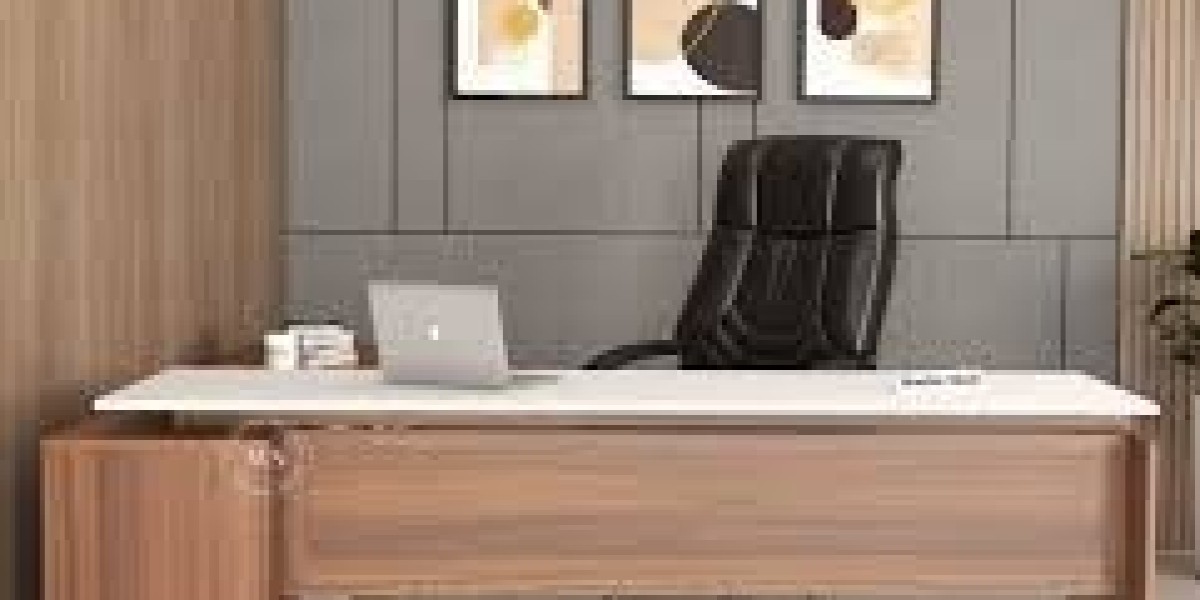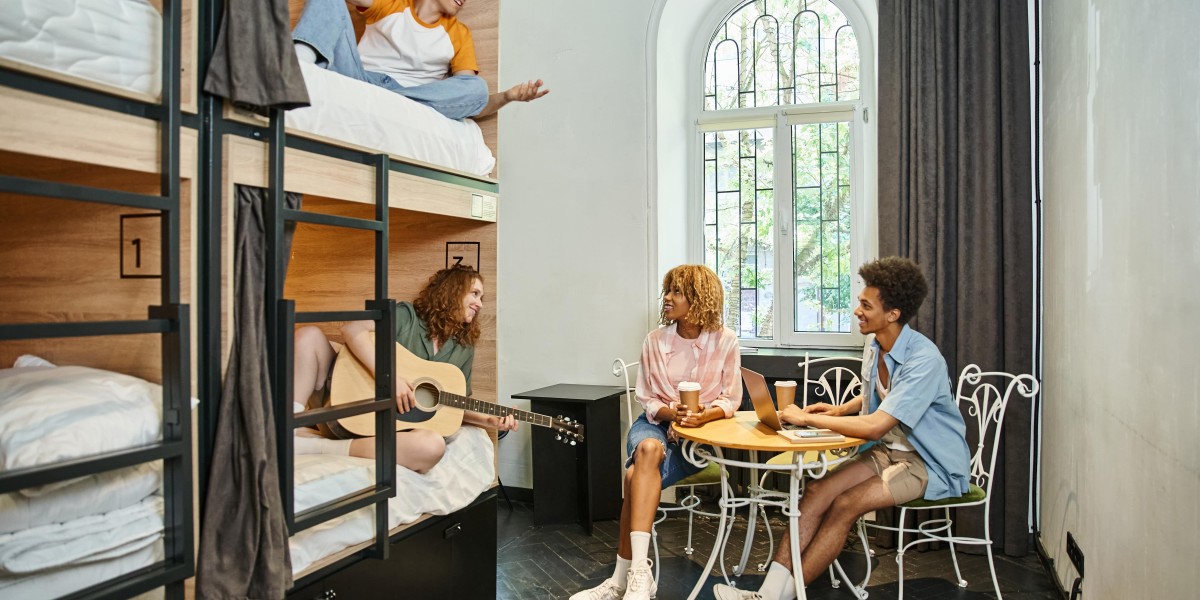In today’s dynamic work culture, the concept of the office has evolved far beyond rows of identical desks. For small and modern workspaces, the office table is no longer just a piece of furniture—it is the focal point that sets the tone for productivity, comfort, and aesthetic appeal. As businesses adapt to flexible layouts, collaborative zones, and multifunctional areas, the demand for innovative and space-conscious table designs continues to grow. Choosing the right table is not only about visual harmony but also about creating an environment that encourages efficiency and well-being.
Modern workspaces face the challenge of blending functionality with style. Gone are the days when employees were satisfied with bulky wooden desks that took up half the room. Today’s tables are sleek, smartly engineered, and designed to work within compact environments. Whether you are setting up a home office or a small corporate space, the right table design can transform the overall atmosphere and make your space feel larger, brighter, and more organized.
Minimalist Tables for Maximum Impact
Minimalism has become a defining trend in office furniture design, particularly for small spaces. The philosophy behind minimalist tables is simple: less is more. These designs feature clean lines, simple shapes, and neutral colors, allowing them to blend seamlessly into the surroundings without overwhelming the room. Often crafted with lightweight materials like metal and engineered wood, they are easy to move and reconfigure according to the needs of the day.
A minimalist office table also helps reduce visual clutter, creating an environment that promotes focus. For small workspaces, this is essential—every inch of the room should serve a purpose without making the area feel crowded. Pairing a minimalist table with a well-designed ergonomic chair can create a streamlined, professional look while ensuring comfort during long work hours.
Compact Corner Tables
When space is limited, the best designs are those that make use of every available corner. Compact corner tables are an excellent choice for maximizing space without sacrificing functionality. By fitting neatly into the unused areas of a room, they free up central floor space for movement and collaboration. This makes them ideal for home offices, shared apartments, or small start-ups operating in modest spaces.
Modern corner tables often include clever storage options, such as built-in shelves or discreet drawers, which help keep the workspace organized. Additionally, these designs can be customized with adjustable heights or foldable extensions, making them even more versatile. Whether positioned against a window for natural light or tucked into a quiet corner for focus, corner tables can enhance productivity without dominating the room.
Adjustable and Multi-Functional Designs
Flexibility is the hallmark of modern office furniture. Adjustable tables, which can switch between sitting and standing positions, have gained popularity due to their health benefits and adaptability. For small offices, a table that can transform according to the task at hand is a practical investment. A single adjustable desk can serve as a meeting table, a collaborative workbench, or a personal workstation depending on the day’s needs.
Multi-functional tables take adaptability even further. Some designs integrate hidden storage, built-in charging ports, or expandable surfaces. In a world where technology drives daily operations, these features ensure that the workspace is equipped to handle changing demands without requiring extra furniture. Investing in such a design can help small offices maintain a sleek and uncluttered look while offering maximum functionality.
Glass-Top Tables for a Spacious Feel
Visual space is just as important as physical space when designing small offices. Glass-top tables are an excellent solution for creating the illusion of openness. Their transparent surfaces allow light to pass through, making the room feel brighter and more expansive. This design works particularly well in offices that lack natural light or have limited square footage.
The sleek, modern appearance of glass tables complements a wide range of interior styles, from contemporary to industrial. Paired with minimalist metal frames or wooden legs, they offer both style and durability. While glass requires regular cleaning to maintain its pristine look, the payoff in terms of aesthetic appeal and perceived space is well worth the effort.
Scandinavian-Inspired Simplicity
Scandinavian design has long been celebrated for its clean lines, functional features, and natural materials. In the context of office furniture, Scandinavian-inspired tables bring a sense of calm and order to the workspace. They often combine light wood tones with white or neutral finishes, creating a fresh and airy atmosphere.
These tables typically feature built-in storage solutions that align with their minimalist ethos—drawers and shelves that are integrated seamlessly into the design. For small offices, this means less reliance on additional cabinets or storage units, allowing the table to serve as the central organizing element. The timeless appeal of Scandinavian design ensures that your workspace will remain stylish and relevant for years.
Foldable and Portable Options
For highly flexible environments or temporary setups, foldable and portable office tables are a practical choice. These designs can be easily packed away when not in use, freeing up valuable space for other activities. This makes them particularly suitable for shared spaces, co-working environments, or small home offices where space must serve multiple purposes.
Portable tables often come with wheels for effortless movement, allowing you to reconfigure your workspace as needed. While they may lack the permanence of fixed designs, their adaptability makes them an excellent option for dynamic work environments. With modern manufacturing, even foldable tables can be sleek and durable, ensuring that you do not have to compromise on style.
Local Craftsmanship and Custom Designs
While global design trends offer plenty of inspiration, there is a growing appreciation for locally crafted furniture that reflects cultural identity and craftsmanship. For example, finding the perfect office table in Karachi might mean discovering designs that incorporate traditional woodworking techniques with modern functionality. Local artisans often bring unique materials, finishes, and customization options that mass-produced furniture cannot match.
Custom designs are particularly valuable for small and modern offices because they can be tailored to the exact dimensions and needs of the space. Whether it’s a built-in desk for a narrow hallway or a multi-tiered table for a compact studio, bespoke furniture ensures no space is wasted. Supporting local makers also adds a layer of authenticity and connection to your workspace.
Integrating Tables into the Overall Design
An office table should never feel like an afterthought—it should be an integral part of the overall design concept. When selecting a table, consider how it interacts with the room’s lighting, wall colors, and flooring. A well-chosen table can anchor the space, complementing other design elements while providing a functional work surface.
For small offices, it is important to maintain a consistent design language to avoid visual clutter. This means choosing a table that aligns with the style of storage units, chairs, and decorative elements. Harmonizing colors and materials will create a cohesive environment that feels intentional and polished, even if the space is compact.
Balancing Style, Comfort, and Productivity
While aesthetics are important, the primary role of an office table is to support productivity. This means selecting a design that balances style with ergonomic considerations. A table that is too low or too high can cause discomfort over time, leading to reduced focus and even health issues. Adjustable designs, ergonomic accessories, and appropriate lighting all contribute to a workspace that supports long-term efficiency.
In modern work environments where employees often switch between individual tasks and collaborative projects, the ability to reconfigure the table layout is a significant advantage. Tables that can be moved, grouped, or expanded provide the flexibility needed to keep pace with changing demands while maintaining comfort and style.
The Future of Office Table Design
As remote work and hybrid models become more common, office table designs will continue to evolve. We can expect to see more emphasis on sustainability, with materials sourced responsibly and manufactured with minimal environmental impact. Technology integration will also advance, with tables designed to accommodate wireless charging, cable management, and even embedded screens.
In small and modern workspaces, the focus will remain on multifunctionality, adaptability, and style. Whether it’s through smart storage solutions, modular components, or innovative materials, the goal will be to create furniture that enhances both the form and function of the office.
Conclusion
Choosing the right office table is a decision that impacts not only the appearance of a workspace but also the productivity and comfort of its users. For small and modern offices, the challenge lies in finding designs that maximize functionality without compromising on style. From minimalist and Scandinavian-inspired tables to adjustable, foldable, and locally crafted options, there is no shortage of creative solutions for making the most of limited space.







